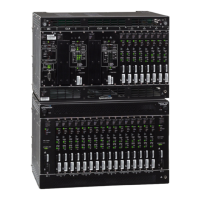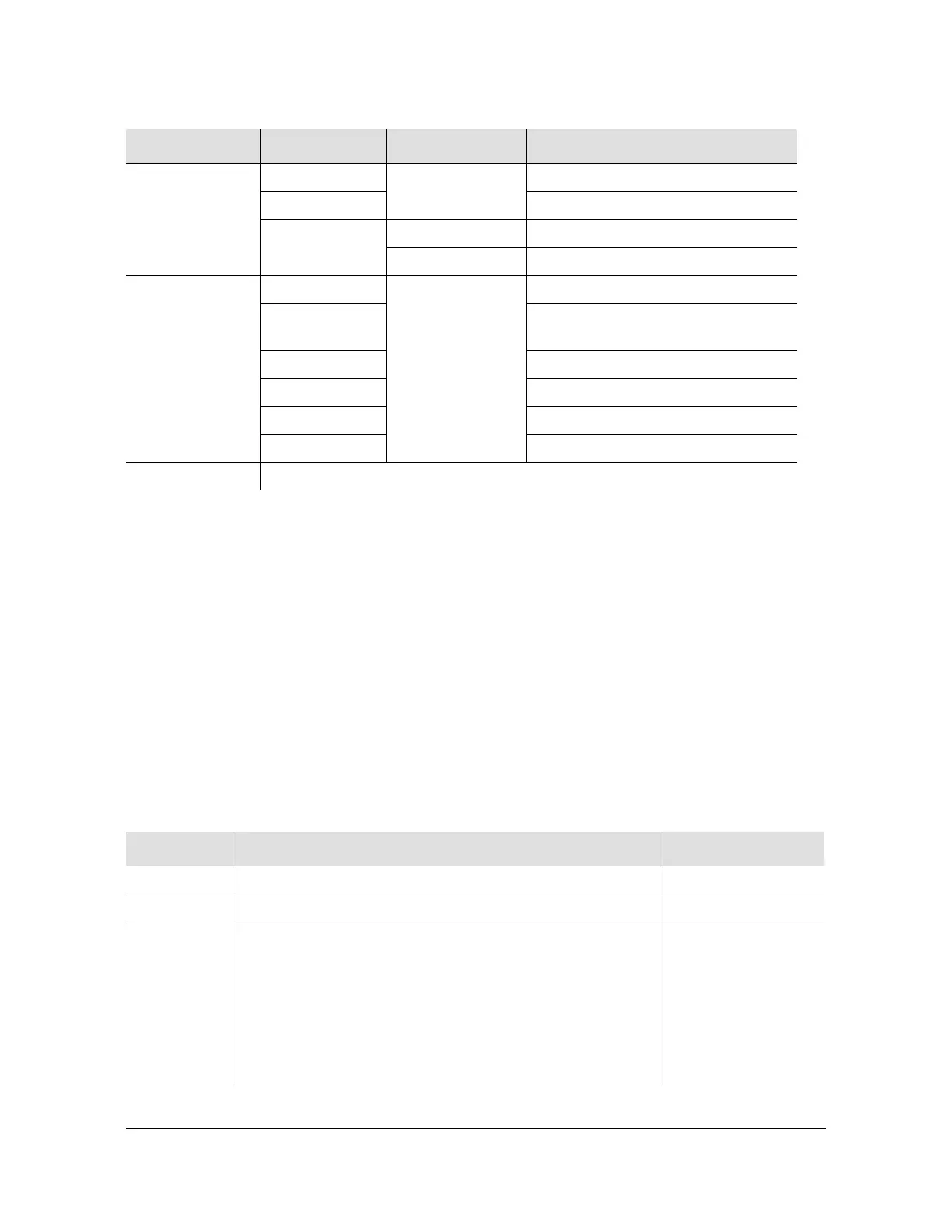097-55501-02 Issue 7 – January, 2005 TimeHub 5500 TL1 Reference Guide 45
Commands
Command Description
Command Example:
ED-EQPT::CLK:SC001:::SYNCMDE=MANUAL,MANCHAN=2;
The command in this example sets the input selection mode to manual and sets the
input channel to 2.
Edit Password
This command edits a user’s own password in the Security Database. The
command format is:
ED-PID:[<tid>]:<aid>:<ctag>::<oldpid>,<newpid>;
Parameter Value Variables Description
<aid> CLK — Clock card
IMC Management card
Sa-OUTb a = 1 Shelf number
b = A, B, C, or D Output Driver card letter
<measurement> FFOF — Fractional Frequency Offset
LMRTIE Latest Maximum Relative Time
Interval Error
MRTIE Maximum Relative Time Interval Error
SPRD Frequency Spread
TDEV Time Deviation
TIE Time Interval Error
<value> See Chapter 3, Keywords.
Parameter Value Description
<aid> Up to ten alphanumeric characters (non case-sensitive) Assigned user name
<oldpid> Existing password Old user password
<newpid> Up to ten case-sensitive characters. Must include at least
two non-alphabetic characters and must include at least one
special character: any printing character other than a letter of
the alphabet, a number, a comma, a colon, or a semicolon.
Note: For Management cards that contain firmware version
4328D, no special characters are required in the password,
but they can be used if desired.
New user password

